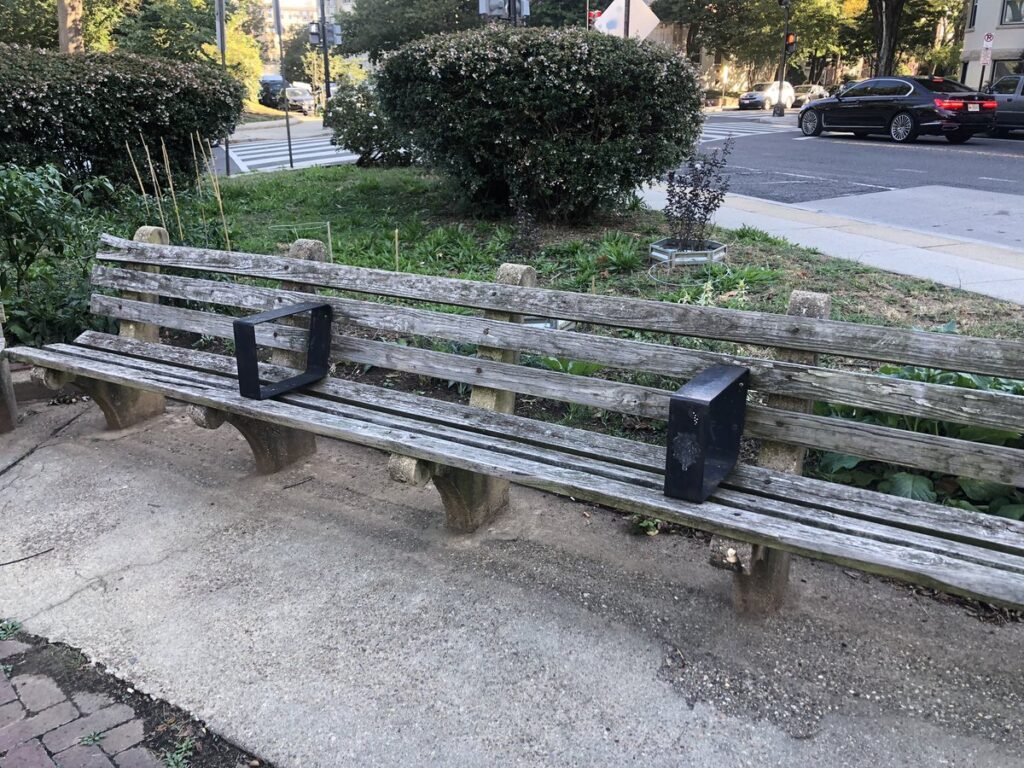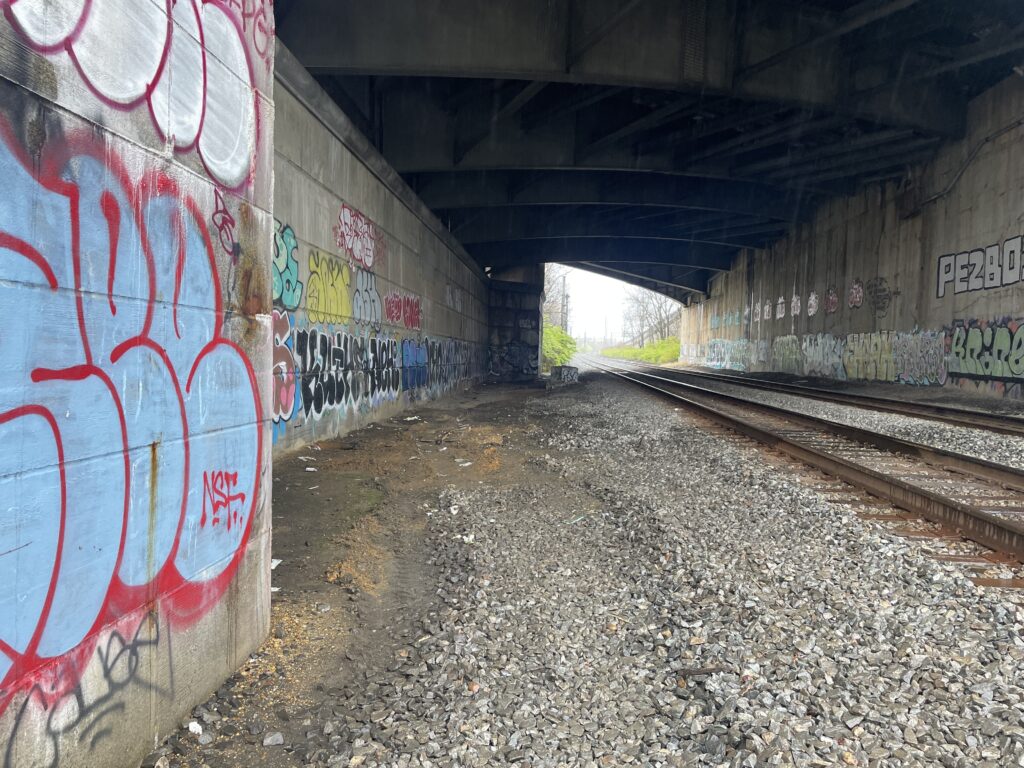Street Sense reached out to a few dozen local and national organizations that shape housing and homelessness policy to hear their predictions about 2024. Here are some of the responses.
Alex Rossello, Apartment and Office Building Association
The city has certainly experienced a tumultuous few years, with the pandemic exacerbating housing insecurity and, by extension, homelessness.
Despite the strides the District has taken to boost housing production, it still does not have enough housing to meet demand, especially at the lower end of the income spectrum. In 2024, the Apartment and Office Building Association will continue to advocate for creative housing policies that reduce costs.
However, while increasing the supply of housing is critical, another equally important aspect is the performance of the District’s housing programs, including rapid rehousing, targeted affordable housing, permanent supportive housing, emergency rental assistance and federal and local voucher programs. Our members play a critical role in fulfilling the goals of these programs. They know how to think outside the box and effectively allocate resources.
We hope that by facilitating increased communication and cooperation between our agency partners and our membership, we can help these programs better serve our community in addressing housing insecurity and homelessness throughout the District.
Ward 4 Councilmember Janeese Lewis George
On Dec. 20, we gathered to commemorate our 90 neighbors who died without a home in the District in 2023. Tragically, 54 of these neighbors had been matched with a housing voucher but died before moving in. D.C. has the resources to end homelessness, but we urgently need to address the bureaucratic and structural barriers that keep people from accessing safe and stable housing through the unused housing vouchers D.C. already paid for.
We also need to confront the reality that thousands of D.C. residents lack affordable housing or face undignified housing conditions that destabilize their lives. One strategy the District should deploy is creating social housing — publicly-owned, mixed-income, truly affordable, sustainable and transit-oriented housing that prioritizes the needs of people and the planet over profit. Social housing is succeeding in other jurisdictions as far as Vienna, Austria, and as nearby as Montgomery County, Maryland. It would be a critical tool to address the unmet needs of D.C. residents for affordable, stable and dignified housing and would help us fight back against displacement.
Kate Coventry, DC Fiscal Policy Institute
On Dec. 20, I went to the annual memorial for D.C. residents who died while experiencing homelessness. In the past year, 90 people died while experiencing homelessness. One lost life is too many. D.C. can prevent these tragedies by preventing homelessness whenever possible and helping people who do experience homelessness quickly move into housing. I am hopeful because the District has tackled some of the implementation issues that have made it difficult to move people quickly into housing. With political will and additional funding, the District can be the first major city to end homelessness.
Susie McClanahan, Equal Rights Center
In 2022, the D.C. Council passed a law that strengthened source of income protections in housing. The law makes it illegal to deny a voucher holder based on their income level or credit score and limits what credit history can be considered.
The law is critical to promoting neighborhood desegregation in the city by reducing barriers that voucher holders face when applying for housing. However, the law hasn’t had the impact it could because many landlords across the city aren’t following it. In 2024, the Equal Rights Center will continue to work to ensure that District landlords are following their obligations.
Sharlene Castle, Jaydot
Going into 2024, the Jaydot team is excited to grow our Permanent Supportive Housing (PSH) Program team. We know that there are still many people experiencing homelessness in D.C. who have been matched to a voucher and have yet to move into housing, and we are excited to be part of the solution.
We will continue to lend our voice to efforts focused on reducing process delays within both the D.C. Department of Human Services (DHS) and the D.C. Housing Authority (DCHA) that can result in clients waiting a very long time to be housed. We have seen how these delays can erode a client’s trust in the overall system that is intended to help them quickly move into stable, permanent and safe housing. We know that both agencies have been working hard to streamline their processes, and we look forward to those changes helping us meet our common goal of expeditiously moving people into housing.
We will also be advocating for the creation of incentives for the various housing models that the District has prioritized over recent years. In our continued work on the development and operation of unit-based Permanent Supportive Housing apartments in District-funded affordable housing projects, we are seeing unusually high vacancy rates for unit-based PSH studio apartments. Our observation is that, given the flexibility, many single adult PSH consumers understandably opt for tenant-based vouchers that will allow them to rent a studio or a one bedroom apartment. This is in large part because nothing within our current system incentivizes people to choose a unit-based studio; such incentives could include quicker processing times or the opportunity to convert their unit-based voucher to tenant-based after a set period of time.
We will also continue to lend our voice to efforts to prioritize quick and comprehensive mental health interventions for permanently housed individuals and families in need. We have witnessed a number of situations like those described in a recent Washington Post article where one resident’s actions can create an unsafe environment for the rest of the building community. We are interested in helping create and sustain vibrant communities where all residents feel safe and comfortable in their housing; this outcome is much more likely if there is a strong emphasis on early intervention with mental health challenges and quick and appropriate responses in crisis situations. And while we do not want anyone to return to homelessness, we will be looking for ways to work with advocates, District government agencies and the court system to shorten the timeline for intervening with residents who pose a serious risk to the rest of their building community and identifying a permanent housing placement that can better meet that resident’s needs.
Ann Oliva, National Alliance to End Homelessness
The 2024 election will dramatically impact the work to end homelessness, and we should all be prepared for homelessness to be a far bigger issue in this election than normal.
This year, it will be essential that we collectively focus on educating federal, state and local lawmakers. We must show them how their communities will benefit when they invest in proven solutions to homelessness and scale up long-overdue investments in affordable housing.
Otherwise, we will continue to see homelessness cynically leveraged as a wedge issue to divide voters, including hateful rhetoric about people experiencing homelessness, reckless conflation of homelessness and crime and harmful and ineffective criminalization tactics.
Ending homelessness benefits every single member of our communities, and we must consistently deliver that message to lawmakers in 2024.
N Street Village
N Street Village saw a significant increase over the last year in the number of working women coming to our programs. As we move into a new year, we will continue to grow Sharon’s Place, the only residential employment program for women in Washington, D.C., which launched last summer. Women should not have to choose between a bed and a job. Giving women a safe place to sleep that accommodates non-traditional work hours allows them to establish stability and become self-sufficient. We will also be prioritizing workforce development to help end homelessness for women.
Another growing population is women aging in place. Elderly women need more than just housing — they need community. N Street Village will be focused on developing a supportive, connected community where women can age in a dignified way with access to health care that addresses concerns such as menopause, incontinence, changing nutrition needs and neurological health. We want to ensure low-income women and women experiencing homelessness have a productive and healthy life as they age.
Christy Respress, Pathways to Housing
Pathways to Housing DC predicts that the District of Columbia will rise to meet the urgent needs of its unhoused residents and those at risk of homelessness in this pivotal year ahead. The keys to this potential for success must be unlocked through both public accountability and targeted investments in financial resources, legislative successes and innovations. To make substantial progress and to fulfill this prediction, our community must:
- Make strategic and timely investments now to end homelessness. Knowing that mid-year budget cuts from both the Department of Human Services and the Department of Behavioral Health are already predicted, we must find ways to fund critical services that support people in areas of housing, mental health, substance use services and homeless outreach services. Housing First initiatives that combine housing with supportive services are the most proven and successful models. Pulling back resources from this commitment pushes our community into further distress and inequity.
- Invest in prevention resources. Prevention dollars like the Emergency Rental Assistance Program need to be increased substantially. Currently capped at just 3,500 applications, the need far exceeds the resources available. The 2023 Point-In-Time Count provided the most telling call to action for prevention resources with a reported spike in people entering homelessness for the first time as federal COVID relief funds expired. The age-old adage that an ounce of prevention is worth a pound of cure will need to resonate more loudly with elected officials if we are truly going to end homelessness and create a more equitable city.
- Build capacity with investments in the frontline workforce who do the lion’s share of this lifesaving work. A huge step forward will be the passage of the Social Work Modernization Act, co-sponsored by 10 D.C. Council members and supported by the Council Office of Racial Equity. The impact of the passage of the act will be both immediate and long-term — helping to increase the number of licensed social workers in the District who are essential to providing the supportive services needed to end homelessness and support the recovery of those in housing. Attracting and retaining this workforce has been a fundamental challenge for the entire sector post-pandemic due to burnout, inadequate compensation and racially biased social work licensure exams.
- Pursue innovations and create new paths forward that were proven to be successful during the pandemic in communities across the country and here in the D.C. region. Our community can and should re-envision a downtown D.C. with more deeply affordable housing and workforce housing for service providers, make more robust investments in health care resources for individuals experiencing homeless, including a new medical respite program for women, increase investments in mental health and substance use services, provide more targeted housing for aging populations, repair broken systems of care and housing for our returning citizens, build on investments dedicated to a Peer Specialist Certification Program launched by the Department of Human Services to ensure people with lived experience have a permanent voice at the table as decision-makers, and create more paths forward for employment and other forms of income.
With the right progressive political will at the right time, the District and the region can ensure that homelessness is solvable. Housing First initiatives, outreach services, peer support and prevention resources are the best resource investments to ensure that the District creates a path forward towards success and fulfills its much-touted Homeward DC goals.








